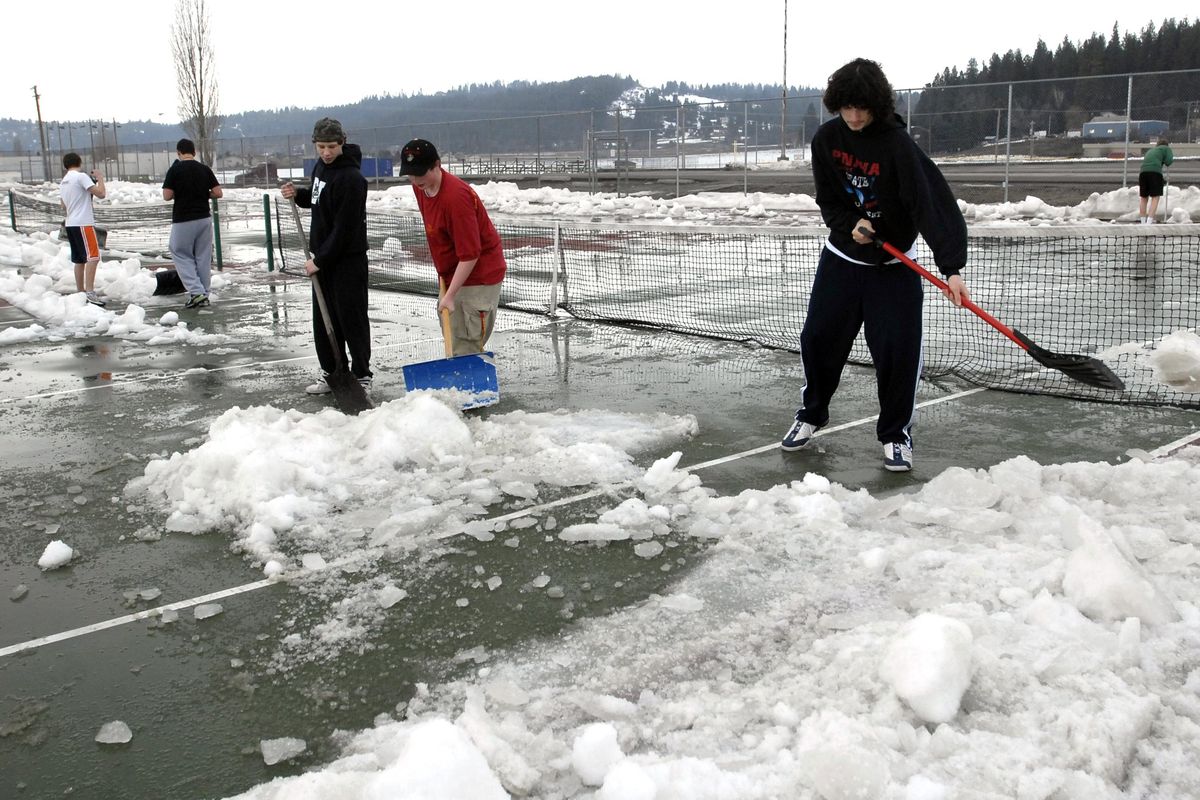Retired Mead boys tennis coach recalls snowy courts past, making starting lineups

Bill Wagstaff hasn’t had any difficulty filling his proverbial dance card these days.
Facing his first spring as a fully retired high school tennis coach after 42 seasons leading the boys tennis team at Mead High, the coach recently returned from a trip to the Spring National tennis tournament in Florida and attending his son’s Navy commissioning ceremony.
But there’s a touch of nostalgia in the air.
“I’m beginning to wonder if I retired a year too soon judging by the weather out there,” he said, laughing. “Obviously, my replacement has a better relationship with the weather gods than I had.”
Wagstaff hung up his whistle last spring. Bryce Borland took over the program and will take over administrating the Inland Empire tournament that Wagstaff started as well.
When Wagstaff tells you this spring – with its sunshine and warmer-than-average temperatures – is uncommon? Take it from the man who knows.
“It’s not just that we have no snow to deal with, although we’ve had that in recent years,” he said. “Even more common are the days where it’s cold and rainy and we would have to get kids court time in shifts. We’d have them practice in the morning, after school at the high school and the middle school and the kids who had memberships at the racquet club we’d ferry over there to work out. We took kids to Whitworth University in the evenings. We’d be holding six hours of practices.”
There have been springs, he recalled, where he issued snow shovels to players long before they picked up a tennis racket.
“I had them shovel a checkerboard pattern,” he said. “You really can’t shovel off the whole court, so you expose some of the court and let the sun melt what’s left.”
More importantly, when it comes to setting a varsity lineup, most teams have a challenge system in place where players work out their seeding on the court.
“I have seen a lot of tennis in my time,” Wagstaff said. “But in 42 years I never once got it completely right. That makes it so important to get those challenge matches in.”
The biggest factor skewing his early season rankings, the former coach said, comes down to the same drive that you find in athletes successful in any sport.
“It comes down to just how much you want to get better,” Wagstaff said. “I used to tell kids this all the time. If you play high school tennis and you only play during the season, by the time you are done you will have played 48 weeks of tennis. But if you work a couple days a week over the off season and keep working on the things that we show you during the high school season, you’re going to get better and better. You will keep getting better than the kids who only play the regular season. You will own that. No one will be able to take that away from you.”
Wagstaff said he will have a difficult time staying away from his former team.
One of his habits is collecting used tennis balls.
“After a while, the ones we buy at the beginning of the season lose air and they aren’t any good,” he said. “I collect balls from tournaments and events I go to and after I have enough, I take them over and give them to the kids.
“I have enough now, and I’m going to go over to the end of practice in the next day or two. I don’t want to distract from practice, but I am looking forward to seeing my kids.”